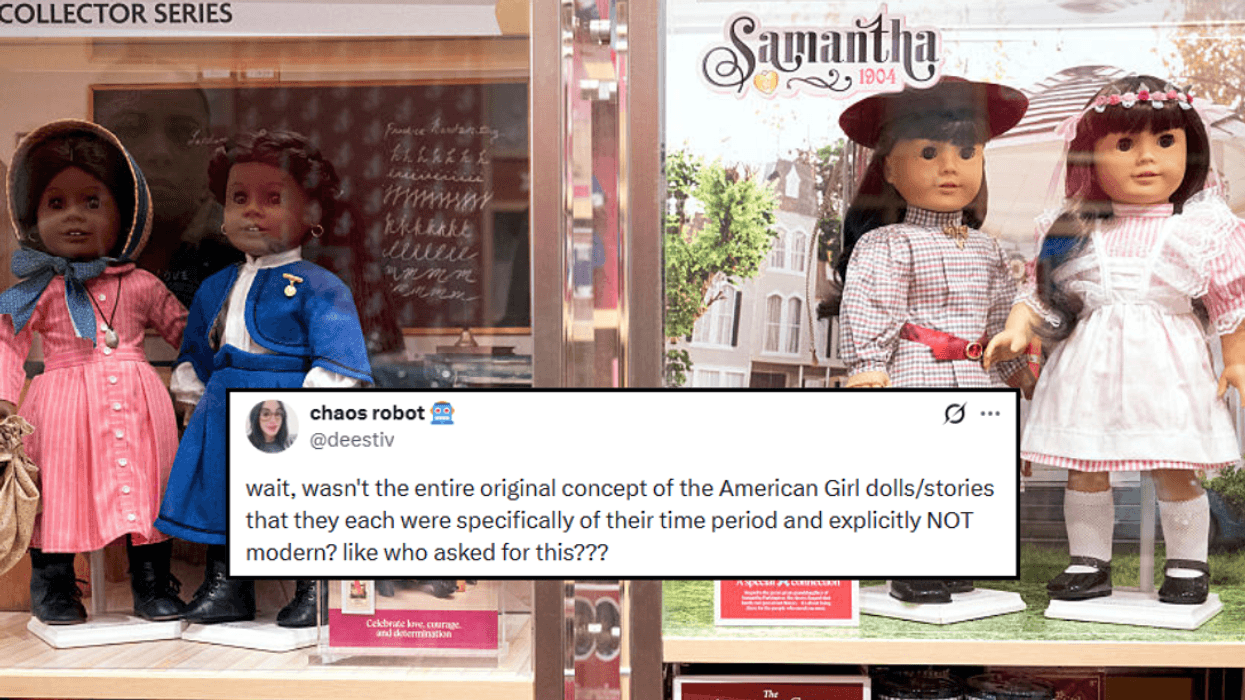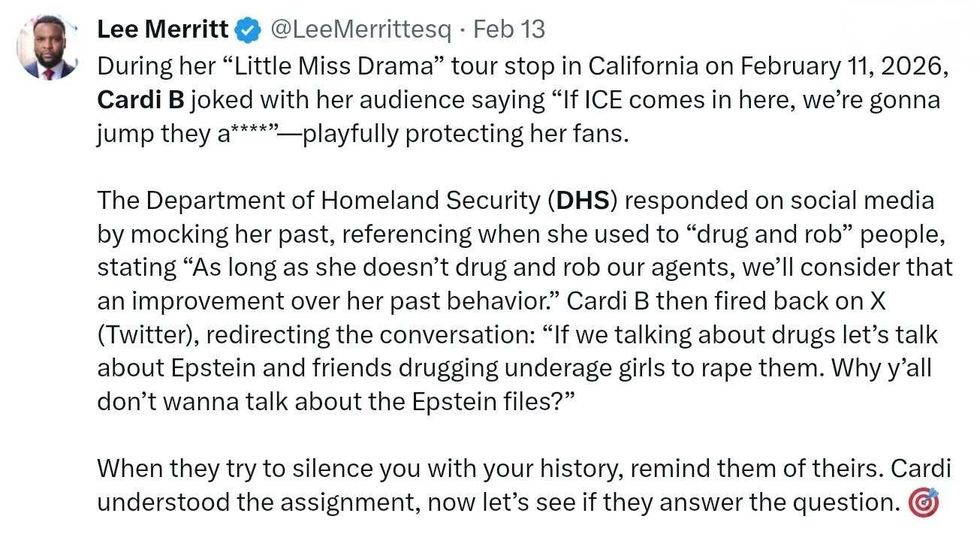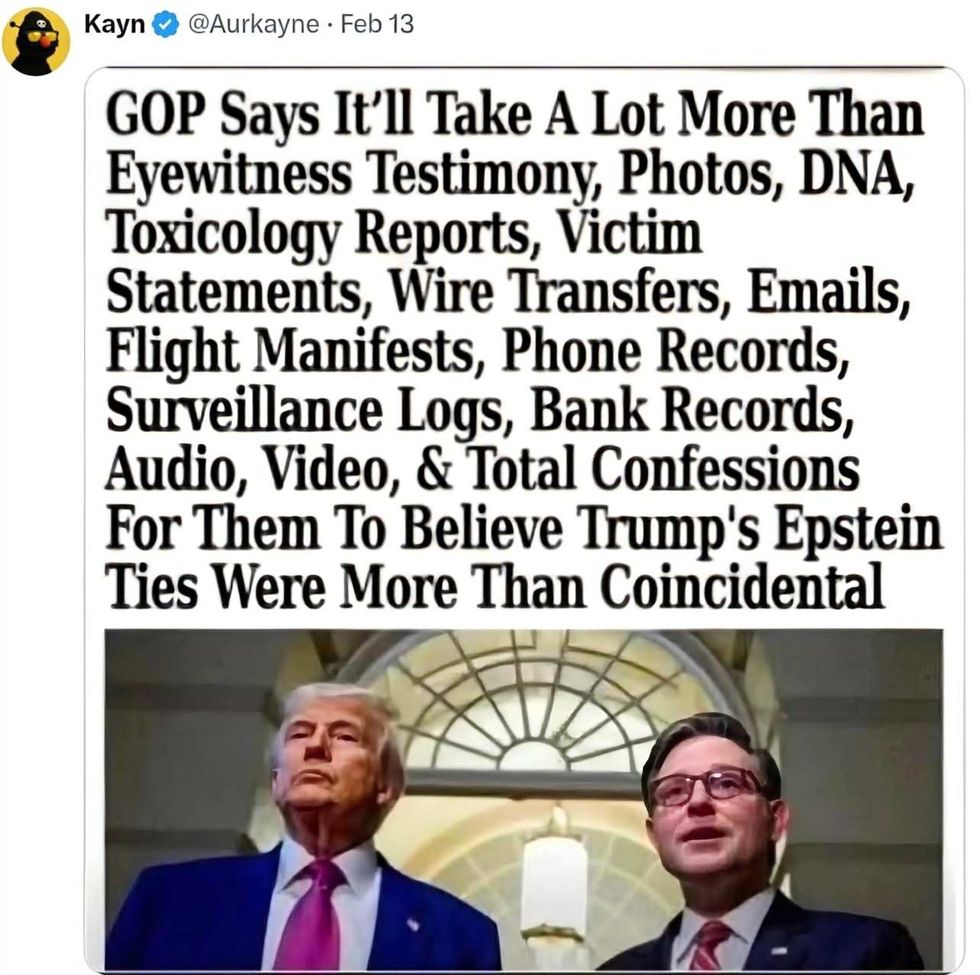State Farm insurance received heavy criticism after its leadership announced it would be dropping its "support of a philanthropic program, GenderCool," saying it "has been the subject of news and customer inquiries."
The GenderCool Project—an organization that supports transgender and non-binary youth—came under fire from conservatives who in recent weeks objected to the program's efforts to put LGBTQ+-inclusive books into libraries and schools.
In an official statement, State Farm said the GenderCool Project which "included books about gender identity was intended to promote inclusivity," though it noted it "will no longer support that program" because “conversations about gender and identity should happen at home with parents.”
The move quickly attracted the attention of prominent LGBTQ+ activists who criticized State Farm for walking back its prior pledges to support LGBTQ+ youth.
Among these critics was the activist and writer Charlotte Clymer, who said State Farm had bowed to the demands of "hateful extremists."
Last night, State Farm, the insurance company, gave up on LGBTQ rights after being pressured by hateful extremists.
So much for being a good neighbor. I wrote about it here.https://t.co/m5VD6Nu2qA
— Charlotte Clymer 🏳️⚧️🇺🇦 (@cmclymer) May 24, 2022
Indeed, the backlash to State Farm's announcement is not without merit given the company—which is worth $79 billion—shared a tweet as recently as last week for mental health initiatives aimed at LGBTQ+ youth.
In its tweet, State Farm specifically mentioned The Trevor Project, a nonprofit focused on suicide prevention efforts among lesbian, gay, bisexual, transgender, queer and questioning youth.
When we talk about mental health, we take away the stigma. For #MentalHealthAwarenessMonth, learn about challenges faced by LGBTQ+ youth in the new 2022 national survey on LGBTQ+ youth mental health from @TrevorProject: https://t.co/KQ74fWPDvx
— State Farm (@StateFarm) May 19, 2022
But the company's association with The GenderCool Project did incense conservative detractors such as Will Hild, the Executive Director of Consumers First, an organization that has openly accused corporations of participating in "woke indoctrination" of young students.
🚨 Emails leaked to @ConsumersFirst from concerned @StateFarm employees show the company engaged in the woke indoctrination of kids age 5+.
State Farm partnered with The GenderCool Project — which aims to have conversations with children about being Transgender and Non-Binary. pic.twitter.com/MYcZSW8Yp1
— Will Hild (@WillHild) May 23, 2022
The evidence to suggest State Farm had caved to pressure from conservatives angered others who suggested the company had failed to live up to its prior commitments to one of the country's more vulnerable populations.
Many threatened to take their business elsewhere.
🧑🏽⚕️ LGBTQ There are other Reputable Companies out there. Use your Spending Power to teach the Cowards certain values cannot be trade. https://t.co/FrkOF5ylFj
— Joyeta Anderson (@JoyetaAnderson) May 24, 2022
Disgusting and shameful, @StateFarm
Expect a call to cancel my *entire* family's various insurance policies. https://t.co/4GmbRmXQof
— Stephanie Quist (she/her) (@stephanie_quist) May 24, 2022
Hey, @StateFarm, this is very disappointing. I've been a customer for years; now I'm looking for alternatives. Do better. https://t.co/XESQPQ5KS7
— Ross T-McD (@RossTMcD) May 24, 2022
Hey @StateFarm I have been a customer for over 30 years and I am so disappointed to hear this. Looks like it might be time to start looking for a new insurer if you aren’t willing to support the lgbtq community in even as simple a way as this. https://t.co/Hx0Yk9DYVl
— Jennie (@olderthanyou42) May 24, 2022
.@StateFarm chose to side w/hate, bigotry, & persecution. Boycott #StateFarm & tell everyone you know, including companies you do business with who happen to use State Farm.#LikeABadNeighbor
STATE FARM, the insurance company that literally cancelled equality & diversity.#LGBTQ https://t.co/e8YED5DsGA
— Mark Hughes (@markhughesfilms) May 24, 2022
Hey @StateFarm it’s time for me to switch insurance cos. I’ve been with you since I bought my first car. After I got married my husband wanted to switch insurance companies and I said, no. I’ve known State Farm longer than I’ve known you. Well, @StateFarm I don’t know you anymore https://t.co/TyEdTHTLzh
— Dee . . . protect Roe #ERA (@furey) May 24, 2022
In recent months, Republicans across the country have sponsored a wave of anti-LGBTQ+ legislation, much of it directed at transgender people.
Debates about corporate responsibility have also taken center stage in response to Florida's controversial "Don't Say Gay" bill.
Florida’s Republican-sponsored Parental Rights in Education bill, or H.B. 1557, was recently signed into law by Republican Governor Ron DeSantis. The law, colloquially known as the “Don’t Say Gay” law, aims to “reinforce the fundamental right of parents to make decisions regarding the upbringing and control of their children in a specified manner.”
The law wants to prohibit “a school district from encouraging classroom discussion about sexual orientation or gender identity in primary grade levels or in a specified manner” and authorizes parents to “bring an action against a school district to obtain a declaratory judgment that a school district procedure or practice violates certain provisions of law.”
Disney received negative press earlier this year after fans–and even Disney heir Abigail Disney–criticized the corporation amid reports the entertainment company donated to politicians who supported the "Don't Say Gay" bill.
Current Disney Chief Executive Officer (CEO) Bob Chapek had not spoken out against the lesgislation, a sharp contrast from former Disney chairman and CEO Bob Iger, who retweeted President Joe Biden’s criticism of the “hateful bill.”
Geoff Morrell, a former George W. Bush appointee to the Defense Department who now works as the Disney Corporation's Chief Corporate Affairs Officer, defended Chapek's silence, saying he simply desired both to keep his personal political affiliations private and for the Disney Corporation to remain apolitical.
That defense did not satisfy Disney fans or employees, who criticized the company's stance until the backlash forced the company to pivot.
Disney's about-face prompted Florida Republicans to retaliate by introducing legislation revoking the company's special tax district, which Governor Ron DeSantis quickly signed.
















 @LeeMerrittesq/X
@LeeMerrittesq/X @bob_moss/X
@bob_moss/X @jelanijones/Bluesky
@jelanijones/Bluesky @Aurkayne/X
@Aurkayne/X @sadcommunistdog; @froglok/Bluesky
@sadcommunistdog; @froglok/Bluesky